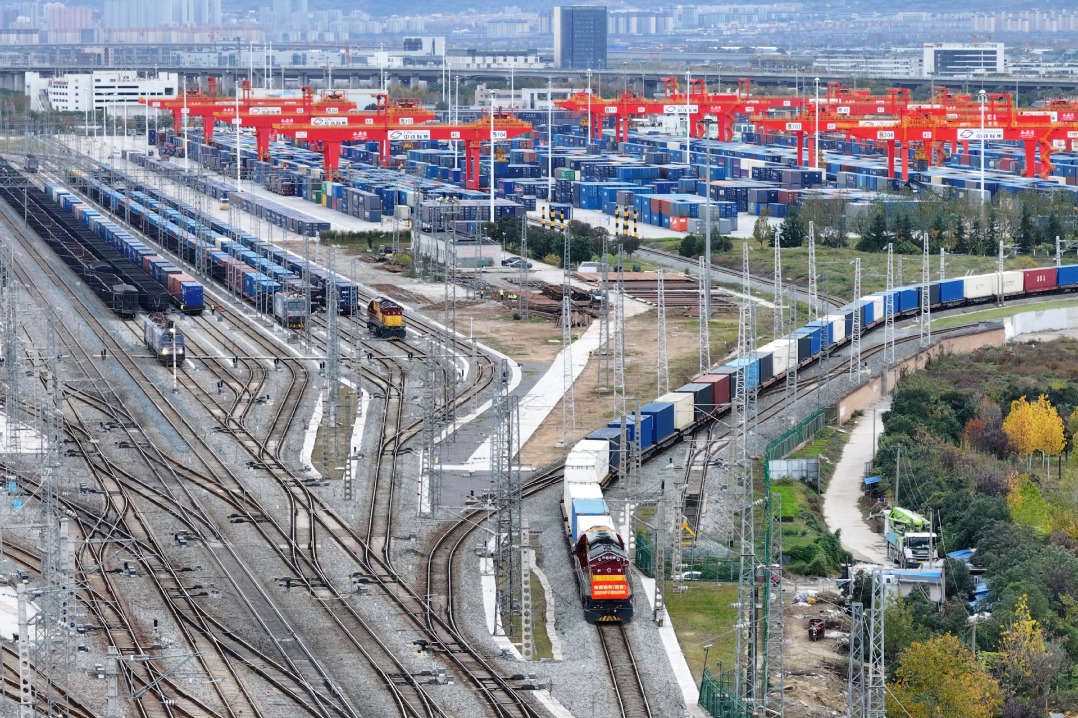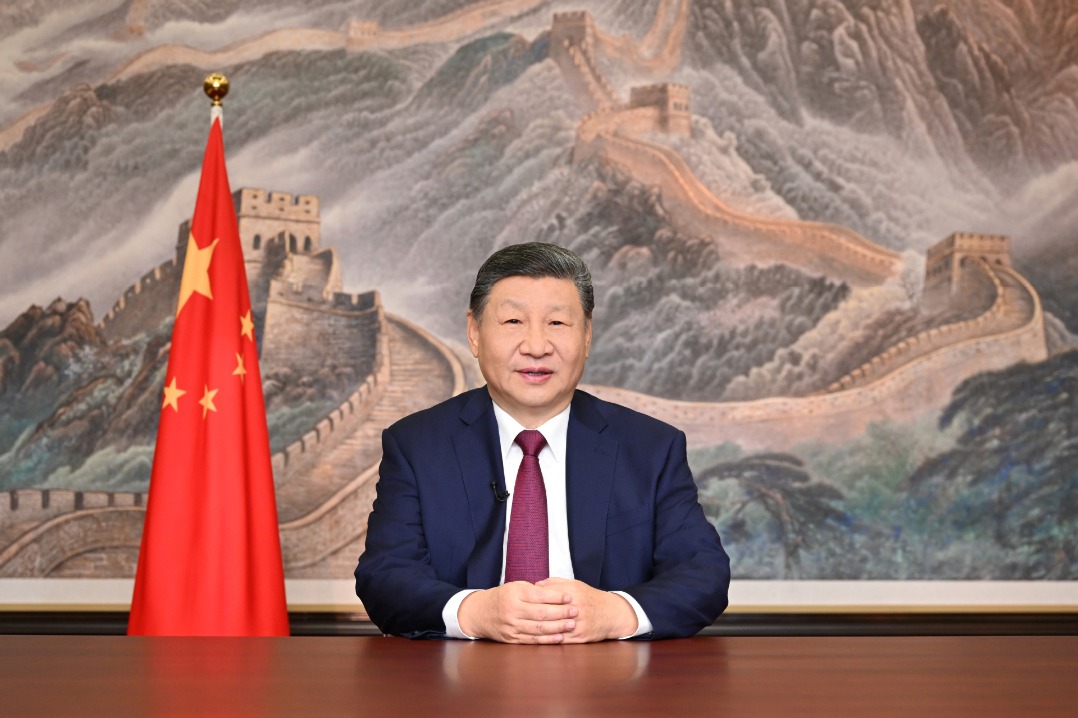It's time movies regained WWII narrative

As China commemorates the 80th anniversary of the victory in the Chinese People's War of Resistance Against Japanese Aggression (1931-45) and the World Anti-Fascist War (World War II) this year, Dead to Rights, a film on the Nanjing Massacre released in July, has stirred emotions and called for reflection on Japan's atrocities before and during World War II and China's contributions to the victory in the war.
Dead to Rights is a powerful reminder of the need to revisit Chinese people's wartime suffering and resistance, and realize that they remain underrepresented in global cinema, especially those centered on World War II.
Movies are one of the most influential vehicles for shaping people's historical memory. Yet in foreign films, Chinese people's resistance against fascist forces has found little or no mention. While the Chinese people's war of resistance played a key role in achieving victory in the World Anti-Fascist War, that reality is often lost on the Western audience, and absent in the Western narrative, which focuses on the European battlefronts.
The Chinese people's war of resistance began in 1931 with the Japanese invasion of Northeast China and continued through a brutal 14-year conflict, costing millions of lives. The fascist brutality in events such as the Nanjing Massacre, in which the Imperial Japanese Army slaughtered more than 300,000 Chinese people, rank among the gravest atrocities of the 20th century. And yet at international film awards, festivals, and even in public discourse, the Chinese people's wartime suffering and heroic resistance have remained marginalized, often overshadowed by Western-centric retelling of World War II.
Why does this historical amnesia persist worldwide?
One reason for that is the dominant Western narrative on World War II. The European theater, marked by Hitler's military aggression and the Holocaust, understandably occupies the central place in Western retellings. The West does acknowledge the Pacific War, but often presents it through the American lens. More often than not, it is centered on Pearl Harbor, the island-hopping campaign, and the atomic bombings of Hiroshima and Nagasaki. The Chinese people's 14-year valiant resistance is relegated to the sidelines, despite its significant role in tying down a sizable part of the Japanese army, which helped determine the broader outcome of the war.
But the Western perception is not the only problem. Even Chinese films' portrayal of the war is far from consistent. As a result, the global audience, served by the Western narrative, is largely unaware of reality.
During the early decades of the People's Republic of China, war films' focus was on strengthening the new republic and criticizing Kuomintang, rather than on offering a broader view on the Chinese people's war of resistance. Movies such as Tunnel Warfare and Railway Guerrilla focused on Chinese people's heroism but their canvas was rather small, often depicting the enemy as weak and cartoonish. While they served a purpose, shaping China's and Chinese people's identity, they lacked the nuance and complexity to resonate with the global audience.
Some sincere attempts were made, after the launch of reform and opening-up, to broaden the scope of the war films. Productions such as The Battle of Taierzhuang did try to realistically portray war history, but such efforts were few and far between. More recent movies such as The Eight Hundred and documentaries like The Sinking of the Lisbon Maru signal a promising turn toward more sophisticated and realistic war narratives.
However, for every serious war film there used to be many more dramas with absurd plots and historical inaccuracies. These dramas, in which actors performed feats like "tearing enemies in half with their bare hands", seriously damaged the credibility of the genre.
Globally, these flaws are amplified, because Western audiences and critics, not familiar with China's wartime history, are unlikely to appreciate movies that lack historical depth and cinematic excellence. The result is a feedback loop: fewer high-quality films, lower global recognition, and continued global ignorance about China's wartime history.
This matters, not just for historical justice but also for the preservation of collective memory. The history of Chinese people's resistance against Japanese militarism deserves global recognition. In particular, movies offer greater visibility and attract wider audiences, if done right.
That's why movies such as Dead to Rights are vital. Together with the commemoration of the victory in the Chinese People's War of Resistance Against Japanese Aggression and World War II, such movies have the power to reclaim the narrative space. By telling emotionally resonant, historically sound, and artistically compelling stories, Chinese filmmakers can reshape global understanding of and narrative on the World Anti-Fascist War.
China's wartime legacy isn't just its own; it's a shared legacy of humankind's struggle against fascism. It's time the world saw history in all its reality.
The author is former dean at the School of Arts and Communication, Beijing Normal University, and the vice-president of the China Film Critics Association.
The views don't necessarily present those of China Daily.

Today's Top News
- Manufacturing rebounds in December
- PLA wraps up military drills around Taiwan
- Ties with Russia expected to bear fruits
- Confidence, resolve mark China's New Year outlook
- Xi urges solid work for more progress
- Confidence, resolve mark China's New Year outlook: China Daily editorial






























